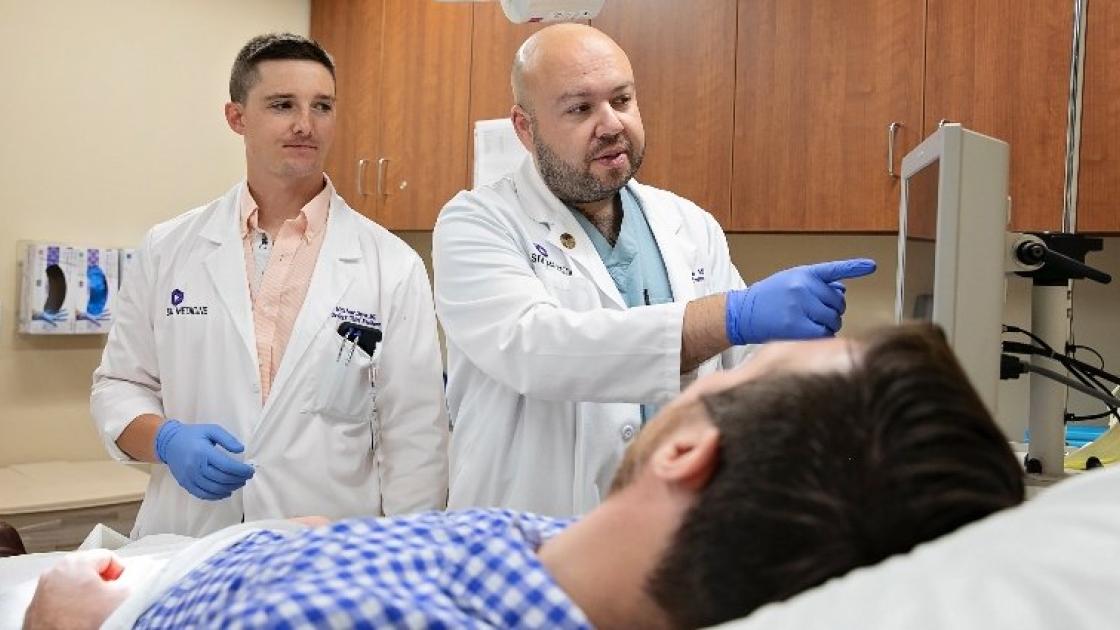
Prostatitis and prostate cancer
SIU Medicine attracts some of the area’s most highly trained physicians in a range of medical fields, including urology. Among the many services our urology staff provides, prostate health screenings are some of the most effective and potentially life-saving. We encourage men to talk to their doctors about when and how they should be screened for prostate cancer, prostatitis and other conditions affecting their prostate health.
What is prostatitis?
Prostatitis is a condition that leads to inflammation of the prostate, a small walnut-sized gland located beneath the bladder. It produces seminal fluid (semen) that helps transport sperm, and also helps control your urine stream.
Prostatitis can occur due to a variety of reasons. The pain and discomfort is often due to dysfunction of the pelvic floor muscles. This condition generally affects men younger than 50. Younger to middle-aged men who have had trauma or surgery in the abdominal/groin area, have had HIV/AIDS, or have a history of bladder infection are at an increased risk for prostatitis. Fortunately, successful treatments are available.
Signs and symptoms
Signs and symptoms of prostatitis can come on suddenly or gradually. While these vary significantly, they generally include:
- Problems urinating (e.g., frequency, urgency, difficulty emptying)
- Dysuria, aka pain or burning during urination
- Bloody or cloudy urine
- Groin, lower back, scrotum, peri-anal, penis, testicle and/or abdominal pain
- Pain in the abdomen or lower back
- Pain during ejaculation
Importantly, these symptoms are NOT similar to prostate cancer symptoms. Oftentimes prostate cancer doesn’t have any symptoms early in the disease stage—which is why routine screening is so essential.
Who should get screened for prostate cancer?
Like many health conditions, prostate cancer can be treated and managed more successfully if detected early. This is why regular and routine screening is so essential for men.
The groups most in need of screening for prostate health conditions are:
- Men aged 50 - 69
- Men with a family history of prostate cancer
- African-American men
Additionally, the American Urologic Association recommends that all men should begin screening around the age of 55 with the Prostate-Specific Antigen (PSA) test and Digital Rectal Exam (DRE). Not only are these testing methods safe, but they are considered the most effective for early detection of prostate cancer and other prostate health conditions. Men with a strong family history of early prostate cancer should begin screening sooner, as early as 40 years old.
If a prostate cancer screening leads to a diagnosis, our urology oncology team will help create and implement an appropriate individualized treatment plan. This may include medications, surgery, chemotherapy, hormone therapy, radiation and lifestyle modifications.
Are you or a loved one due for a prostate screening?
Prevention and early detection saves lives. Men, make sure your primary care physician gives you a PSA screening at each physical after 50. An SIU urology specialist can see you to discuss elevated PSA results and advise you about your prostate health. Call SIU Medicine at 217-545-8000.




